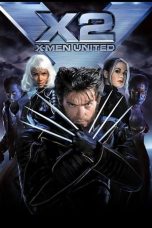- Source: 82nd United States Congress
The 82nd United States Congress was a meeting of the legislative branch of the United States federal government, composed of the United States Senate and the United States House of Representatives. It met in Washington, D.C., from January 3, 1951, to January 3, 1953, during the last two years of President Harry S. Truman's second term in office.
The apportionment of seats in this House of Representatives was based on the 1940 United States census.
Both chambers had a Democratic majority (albeit reduced from the 81st Congress), and with President Truman, maintained an overall federal government trifecta.
Major events
March 29, 1951: Ethel and Julius Rosenberg were convicted of conspiracy to commit espionage. On April 5 they were sentenced to receive the death penalty.
April 11, 1951: President Truman relieved General Douglas MacArthur of his Far Eastern commands.
April 13, 1951: Congress passed a large defense budget 372 votes for the budget and 44 votes against the budget. The budget was intended to help the United States combat communism.
August 31, 1951: The United States Senate passes the Mutual Security Act by a vote of 61 votes in favor and 5 votes against. The act provided $7.5 billion for foreign military assistance and food aid to America's allies, primarily the United Kingdom. The vote was condemned by the government of the Soviet Union and praised by the government of the United Kingdom.
September 5, 1951: Treaty of San Francisco: In San Francisco, California, 48 nations signed a peace treaty with Japan to formally end the Pacific War.
October 24, 1951: President Truman declared an official end to war with Germany.
November 10, 1951: Direct dial coast-to-coast telephone service began in the United States.
December 31, 1951: The Marshall Plan expired after distributing more than $13.3 billion USD in foreign aid to rebuild Europe.
March 29, 1952: President Truman announced that he will not seek reelection.
June 19, 1952: The Special Forces created.
July 25, 1952: Puerto Rico became a Commonwealth of the United States, an unincorporated organized territory, with the ratification of its constitution.
November 4, 1952: 1952 United States presidential election: Republican Dwight D. Eisenhower defeated Democrat Adlai Stevenson
November 4, 1952: National Security Agency founded.
Major legislation
October 10, 1951: Mutual Security Act, ch. 479, 65 Stat. 373
June 27, 1952: Immigration and Nationality Act (McCarran-Walter Act), Pub. L. 82–414
July 14, 1952: McGuire Act, Pub. L. 82–542, 15 U.S.C. § 42(a)
July 16, 1952: Veterans' Readjustment Assistance Act, Pub. L. 82–550
July 16, 1952: Federal Coal Mine Safety Act of 1952, Pub. L. 82–552
July 16, 1952: Wire Fraud Act of 1952, Pub. L. 82–555
Constitutional amendments
February 27, 1951: Twenty-second Amendment to the United States Constitution, setting a term limit for election and overall time of service to the office of President of the United States, was ratified by the requisite number of states (then 36) to become part of the Constitution
Treaties
March 20, 1952: Treaty of San Francisco ratified
Party summary
= Senate
== House of Representatives
=Leadership
= Senate
=President: Alben W. Barkley (D)
President pro tempore: Kenneth McKellar (D)
Majority (Democratic) party
Majority leader: Ernest McFarland
Majority whip: Lyndon B. Johnson
Democratic Caucus Secretary: Brien McMahon
Policy Committee Chairman: Ernest McFarland
Minority (Republican) party
Minority leader: Kenneth S. Wherry, until November 29, 1951
Styles Bridges, from January 8, 1952
Minority whip: Leverett Saltonstall
Republican Conference Chairman: Eugene Millikin
Republican Conference Secretary: Milton Young
National Senatorial Committee Chair: Owen Brewster
Policy Committee Chairman: Robert A. Taft
= House of Representatives
=Speaker: Sam Rayburn (D)
Majority (Democratic) party
Majority leader: John W. McCormack
Majority whip: J. Percy Priest
Democratic Caucus Chairman: Jere Cooper
Democratic Campaign Committee Chairman: Michael J. Kirwan
Minority (Republican) party
Minority leader: Joseph W. Martin Jr.
Minority whip: Leslie C. Arends
Republican Conference Chairman: Clifford R. Hope
Policy Committee Chairman: Joseph W. Martin Jr.
Republican Campaign Committee Chairman: Leonard W. Hall
Caucuses
House Democratic Caucus
Senate Democratic Caucus
Members
= Senate
=Senators are popularly elected statewide every two years, with one-third beginning new six-year terms with each Congress. Preceding the names in the list below are Senate class numbers, which indicate the cycle of their election, In this Congress, Class 1 meant their term ended with this Congress, facing re-election in 1952; Class 2 meant their term began in the last Congress, facing re-election in 1954; and Class 3 meant their term began in this Congress, facing re-election in 1956.
= House of Representatives
=The names of members of the House of Representatives are preceded by their district numbers.
Changes in membership
The count below reflects changes from the beginning of this Congress.
= Senate
== House of Representatives
=Committees
Lists of committees and their party leaders for members of the House and Senate committees can be found through the Official Congressional Directory at the bottom of this article. The directory after the pages of terms of service lists committees of the Senate, House (Standing with Subcommittees, Select and Special) and Joint and, after that, House/Senate committee assignments. On the committees section of the House and Senate in the Official Congressional Directory, the committee's members on the first row on the left side shows the chairman of the committee and on the right side shows the ranking member of the committee.
= Joint committees
=Atomic Energy (Chairman: Sen. Brien McMahon; Vice Chairman: Rep. Carl T. Durham)
Conditions of Indian Tribes (Special)
Defense Production (Chairman: Sen. Burnet R. Maybank; Vice Chairman: Rep. Paul Brown)
Disposition of Executive Papers
Economic (Chairman: Rep. Joseph C. O'Mahoney)
Immigration and Nationality Policy
Legislative Budget
The Library (Chairman: Sen. Theodore F. Green)
Navajo-Hopi Indian Administration
Printing (Chairman: Sen. Carl Hayden; Vice Chairman: Rep. Thomas B. Stanley)
Railroad Retirement Legislation
Reduction of Nonessential Federal Expenditures (Chairman: Sen. Harry F. Byrd; Vice Chairman: Rep. Robert L. Doughton)
Taxation (Chairman: Rep. Robert L. Doughton; Vice Chairman: Sen. Walter F. George)
Employees
= Legislative branch agency directors
=Architect of the Capitol: David Lynn
Attending Physician of the United States Congress: George Calver
Comptroller General of the United States: Lindsay C. Warren
Librarian of Congress: Luther H. Evans
Public Printer of the United States: John J. Deviny
= Senate
=Chaplain: Frederick Brown Harris (Methodist)
Parliamentarian: Charles Watkins
Secretary: Leslie Biffle
Librarian: Richard D. Hupman
Secretary for the Majority: Felton McLellan Johnston
Secretary for the Minority: J. Mark Trice
Sergeant at Arms: Joseph C. Duke
= House of Representatives
=Chaplain: Bernard Braskamp (Presbyterian)
Clerk: Ralph R. Roberts
Doorkeeper: William Mosley "Fishbait" Miller
Parliamentarian: Lewis Deschler
Postmaster: Finis E. Scott
Reading Clerks: George J. Maurer (D) and Alney E. Chaffee (R)
Sergeant at Arms: Joseph H. Callahan
See also
1950 United States elections (elections leading to this Congress)
1950 United States Senate elections
1950 United States House of Representatives elections
1952 United States elections (elections during this Congress, leading to the next Congress)
1952 United States presidential election
1952 United States Senate elections
1952 United States House of Representatives elections
Notes
References
External links
House of Representatives Session Calendar for the 82nd Congress (PDF). Archived from the original (PDF) on September 20, 2018. Retrieved June 6, 2016.
"Official Congressional Directory for the 82nd Congress, 1st Session". Congressional Directory. 1951/1952- : S. Pub. 1887.
"Official Congressional Directory for the 82nd Congress, 2nd Session". Congressional Directory. 1951/1952- : S. Pub. 1887.
"Pocket Congressional Directory for the 82nd Congress" (PDF). {{cite journal}}: Cite journal requires |journal= (help)
Kata Kunci Pencarian:
- Ted Cruz
- Yordania
- Medali Davy
- 82nd United States Congress
- List of United States Congresses
- List of United States federal legislation
- 1950 United States House of Representatives elections
- 1950 United States elections
- List of United States senators in the 82nd Congress
- Mutual Security Act
- Party divisions of United States Congresses
- United States Senate Subcommittee on Internal Security
- United States congressional delegations from Oregon
- 1
- 2
Fantastic Beasts and Where to Find Them (2016)
The Bloom of Yesterday (2017)
Mission: Impossible – Ghost Protocol (2011)
Unsung Hero (2024)
Sicario: Day of the Soldado (2018)
Civil War (2024)
Horizon: An American Saga – Chapter 1 (2024)
No More Posts Available.
No more pages to load.














